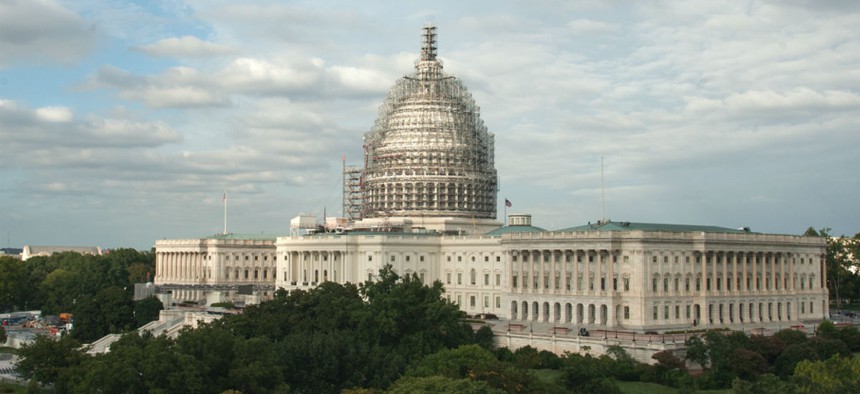
Architect of the Capitol
Leaked CRS Memo Rekindles Debate on Protecting Lawmaker Confidentiality
Activist says policy is overkill.
In the latest wrinkle in transparency advocates’ campaign to open up the Congressional Research Service, a newly leaked internal CRS memo lays out the reasons why the agency must protect the identities of lawmakers who request individualized research.
As reported by the Secrecy News blog of the Federation of American Scientists, a CRS “policy statement” circulated to staff in September reinforces the service’s “fundamental core value” of the confidentiality designed to maintain good relations with congressional patrons and allow members of Congress to pursue potentially controversial lines of tentative research without fear of political attack.
“Even in instances when a Member or committee publicly releases a confidential memorandum that CRS has prepared, staff may not provide copies of the memorandum to other congressional clients,” the memo said. “You should answer any questions that [other] congressional clients have about the issue by preparing a new memorandum or other form of response […], but you must do so in a way that neither confirms nor denies that CRS did the work that has been made publicly available [by the Member or committee].”
Nor are agency staff to be let in on the secrets. One CRS staffer, the memo explained, had a request for data rejected by an agency legislative affairs office unless CRS identified the lawmaker who wanted the data. “You must never reveal the name of the congressional requester without the client's express permission,” CRS Director Mary Mazanec wrote. “In this case, you should explain to the executive branch agency that CRS's statutory mission is to provide confidential research and analysis for the Congress, and that we cannot identify the requester.”
To the Federation of American Scientists’ Steven Aftergood, much of the memo is overkill. “Instead of confidentiality serving as a valuable means to an end, the new policy here elevates confidentiality into an end in itself, and in doing so casts doubt on the good sense of CRS management, he wrote.
Aftergood regularly finds and releases the full CRS reports on various topics that officially are released to the public only at the discretion of lawmakers.
The irregularity with which CRS releases those full reports has long been fuel for debate. CRS, which traces its roots to 1914, when Congress established the Legislative Reference Service at the Library of Congress. It cites language originally appearing in a 1952 legislative branch appropriations bill as the reason it releases no reports without permission from the relevant member of Congress.







